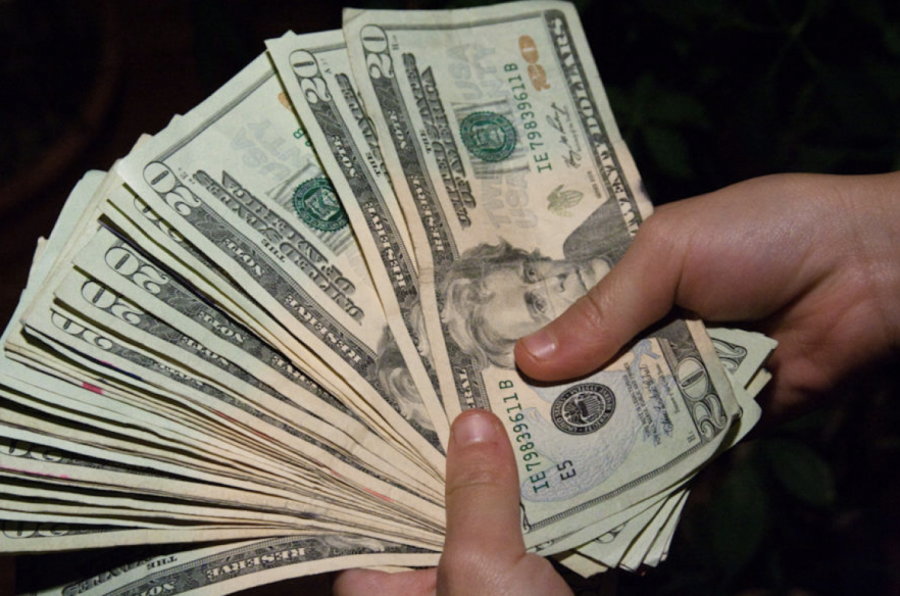Universal Basic Income Would Change Society for the Better
November 25, 2021
Many people throughout the world struggle through poverty, sometimes as a result of just not having enough money to buy the fundamental items they need. As reported by the United Nations, roughly 9.5% of people in 2020 lived below the international poverty line, or less than $1.90 every day; this number is expected to rise following the pandemic, meaning poverty will likely still be a pressing issue in 2020 and onward. Those who live in the lower economic classes can range from not having enough for housing to lacking the necessities to survive, like food and water.
As seen in the World Population Review, poverty is most heavily present in sub-Saharan Africa as well as the Caribbean and Latin America, where residents don’t have easy access to natural resources key to human survival. Examples of this are if the local well is miles away with no good water transportation system, or the crops grown in the area don’t support food for people to consume regularly, meaning malnourishment is prevalent. Even in more developed countries with lower levels of poverty, millions are still struggling to live. PovertyUSA found that 11.9 million kids and almost 4 million people with a disability as of 2018 are among the poor, preventing them from getting a good education or a well-paying job.
With the international implementation of Universal Basic Income (UBI), one can feasibly work towards and reach a place where they can live more comfortable lives, not suffering each and every day to cling onto life. This concept has already been tested out around the globe, attracting attention from many.
So, what is UBI? To put it simply, UBI is the process in which every adult citizen of a country receives a predetermined amount of money on a regular basis. The idea hopes to alleviate as much suffering as possible and become the main method of social welfare; this is so that any people stuck without aid can easily get it without having to deal with any sort of bureaucratic nonsense that might unfold. This has gotten many people to support UBI, like Mark Zuckerberg and Andrew Yang. These people support UBI fully and have tried to implement it in any way they can.
Andrew Yang, a former Democratic presidential candidate, proposed a program named The Freedom Dividend, which would offer $1,000 a month to every person 18 and older regardless of who they were. His proposal attracted thousands of followers, providing evidence of the idea’s popularity. The program was also reported to have the potential to grow the economy by a total of $2.5 trillion, meaning that it would incentivize greater amounts of new businesses opening up and hopefully combat economic problems built up by the pandemic.
In contrast, critics of the implementation of a UBI say that giving everyone money consistently will prompt laborers to not work as hard or at all. They say that offering life-supporting finances would tank the economy. In response, Finland from 2017 to 2019 created a successful UBI experiment, where 2,000 of those unemployed were able to receive 560 Euros (or $616) a month. This program was very successful, with those tested on working hard to make money on their own. With this in mind, there is no country where UBI has been completely implemented; many places are still just testing out how it works as well as using systems that are fairly similar to the UBI model.
UBI has succeeded in places like Kenya, where the charity GiveDirectly has been at it for five years, offering up money to over 6,000 people. This money is given to adults every day, where they are given about $0.70 to $1.10 per person to live off of. Here, a form of study was set up where villages were randomly assigned financial aid and watched to see its effects. The towns later had a random evaluation of how living conditions were, and those who received aid had less hunger, invested in long-lasting tools that would help them later on, and lastly reported a higher psychological well-being.
A similar form of cash payouts to families has already been used in the form of stimulus checks. These monthly payments made out to those qualifying were able to put these checks to good use; they did a variety of things, from paying the bills to making sure food is on the table.
Another experiment held by the then-Mayor of Stockton, California, Michael Tubbs, created the Stockton Economic Empowerment Demonstration, which found neighborhoods in Stockton at or below the city’s median household income. After carefully selecting 125 people, they gave them an unconditional monthly stipend to offer up help. The local government then recorded what happened from February 2019 to 2020, which ended up being generally positive. The constant stream of income enabled those unemployed to find full-time employment while not being rushed to find a job as well as becoming healthier, displaying less signs of anxiety and depression.
UBI is a helpful resource that, if used correctly, can greatly equalize society and make sure everyone has what they need. Any influx of payment that is constant and won’t stop has been proven to make impoverished people’s everyday lives better, resulting in the lessening of many current humanitarian crises.
Photo Courtesy of INHABITAT.COM

